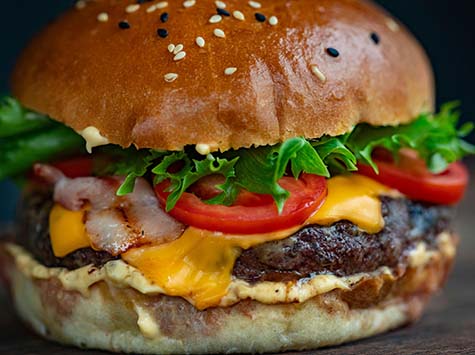
Men and boys see messages all the time that say eating beef is a thing men do, and statistics bear this out, says Diego Rose, nutrition program director at Tulane University. “Whenever we’ve looked at the question of gender, we’ve seen that,” Rose says. “Men eat greater amounts of beef than women.”
Now Rose and other researchers think this fact — that men eat more beef — could be important to a key climate solution puzzle.
Earlier this year, Impossible Foods debuted a new commercial. Like the Burger King “I am Man” commercial that Regisford saw as a kid, the ad starts with a man looking straight at the camera.
He’s tall and muscular, with broad shoulders. “Like a dad from a 1970s barbecue,” says Gabriel Rosenberg, professor of gender studies at Duke University. “He’s got this great mustache.”
“He’s this older figure of masculinity. He’s teaching you how to be a man. And then he’s explosively virile,” Rosenberg says. “It’s basically saying: ‘Men, you have permission to eat our product and still be manly.’”
And the ad isn’t challenging conventional ideas of gender, Rosenberg says: “We’re going to eat like men. We’re going to stuff ourselves.”
Still, given beef’s impacts on climate pollution, media and psychology researchers tell NPR that ads like these matter, because they can help broaden social acceptance for plant-based foods.
Listen to the podcast and read the transcript on NPR
Sept. 15, 2024
